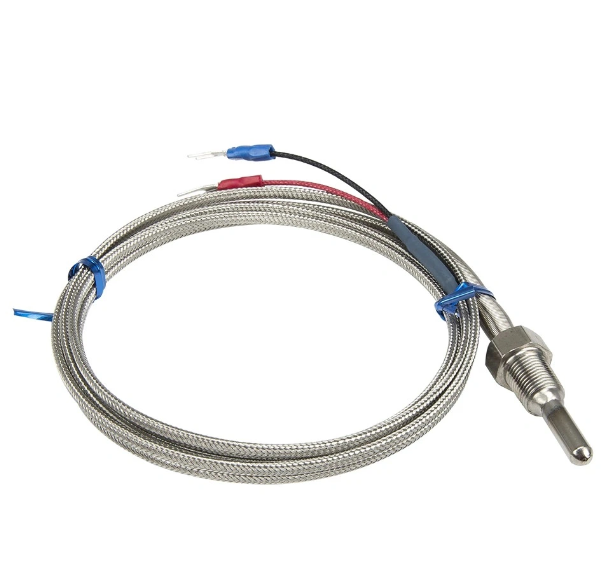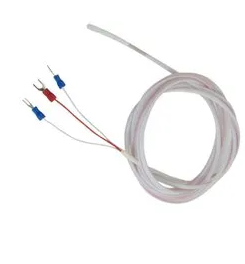Table of Contents
Sensor Wire in Industrial Steam Boiler Ensures Safe and Efficient Operation
A sensor wire in a Steam boiler is used to detect changes in the temperature of the boiler water. The sensor wire is made of a material that changes its resistance in response to changes in temperature. This change in resistance is then converted into an electrical signal that can be read by the boiler’s control system.
The boiler’s control system uses the signal from the sensor wire to regulate the Industrial steam boiler’s operation. For example, if the boiler water temperature is too high, the control system will turn down the Steam boilers flame. If the boiler water temperature is too low, the control system will turn up the boiler flame.
The sensor wire is an important part of the boiler’s safety system. If the boiler water temperature gets too high, the sensor wire will send a signal to the control system to turn off the boiler. This prevents the Steam boilers from overheating and causing damage.

What is a Sensor Wire?
Sensor wire is an innovative technology that combines the benefits of sensors and wiring systems. It consists of a network of interconnected wires embedded with sensors, capable of detecting and transmitting data. These sensors can monitor various parameters such as temperature, pressure, humidity, motion, and much more.
The seamless integration of sensors and wiring empowers businesses to collect real-time data, enabling them to make informed decisions, optimize processes, and enhance overall efficiency. With sensor wire, the possibilities are endless!
Applications of Sensor Wire: Revolutionizing Industries
- Industrial Automation
In the realm of industrial automation, sensor wire technology has emerged as a game-changer. By employing sensor wire networks, manufacturing plants can achieve unparalleled control and monitoring capabilities. These networks can efficiently track and analyze crucial parameters, ensuring optimal performance, minimizing downtime, and boosting productivity.
- Smart Homes and Buildings
The concept of smart homes and buildings has gained immense popularity in recent years. Sensor wire technology plays a pivotal role in making these environments intelligent and efficient. By installing sensor wire networks, homeowners and facility managers can automate tasks, regulate energy consumption, enhance security, and create a comfortable living or working environment.
- Healthcare and Biomedical Applications
Sensor wire technology has also found its way into the healthcare and biomedical fields. The integration of sensors into medical devices and equipment allows for real-time patient monitoring, early detection of abnormalities, and improved healthcare outcomes. From wearable sensors to surgical instruments, sensor wire technology is transforming the way healthcare professionals deliver care.
- Transportation and Automotive Industry
The automotive industry has witnessed remarkable advancements with the adoption of sensor wire technology. From autonomous vehicles to driver-assistance systems, sensors embedded within the wiring system enable precise data collection and analysis, ensuring enhanced safety, efficiency, and performance on the roads.
Benefits of Sensor Wire Technology
The utilization of sensor wire technology brings forth a plethora of benefits across various industries. Let’s explore some of the key advantages:
- Real-time Data Insights
By capturing data in real-time, sensor wire technology empowers businesses to gain valuable insights into their operations. These insights enable them to make data-driven decisions, identify bottlenecks, optimize processes, and stay ahead of the competition.
- Enhanced Efficiency and Productivity
The integration of sensor wire networks optimizes workflows, reduces manual intervention, and streamlines operations. This leads to enhanced efficiency and productivity, enabling businesses to achieve more in less time.
- Improved Safety and Security
In industries where safety is paramount, sensor wire technology acts as a robust tool for risk mitigation. By continuously monitoring critical parameters, potential hazards can be detected early on, preventing accidents and ensuring the well-being of employees and assets.
- Cost Reduction
Sensor wire technology enables predictive maintenance, minimizing unexpected breakdowns and reducing maintenance costs. By identifying anomalies and addressing them proactively, businesses can avoid costly repairs and optimize their maintenance schedules.
Embracing the Future: Sensor Wire in the Digital Age
As we move further into the digital age, sensor wire technology will continue to evolve and shape the landscape of various industries. Its seamless integration with emerging technologies like the Internet of Things (IoT), artificial intelligence (AI), and big data analytics will unlock new possibilities and drive innovation.

Sensor wire technology has revolutionized the way we interact with machines and devices. Its applications span across industries such as industrial automation, smart homes and buildings, healthcare, and transportation. By leveraging the benefits of real-time data insights, enhanced efficiency, improved safety, and cost reduction, businesses can thrive in the digital age. Embracing sensor wire technology enables organizations to stay ahead, drive innovation, and transform the way they operate.
Industrial Steam Boiler sensor wire FAQ
Boiler sensor wire is a type of wire that is used to connect sensors to the boiler control system. The sensors measure various parameters, such as temperature, pressure, and flow rate, and the wire transmits this data to the control system. The control system uses this data to control the boiler’s operation.
There are two main types of boiler sensor wire: two-wire and three-wire. Two-wire sensor wire is the most common type and is used for most applications. Three-wire sensor wire is more expensive, but it is more accurate and reliable.
The cost of boiler sensor wire varies depending on the type, length, and gauge of the wire. Two-wire sensor wire typically costs between Rs 50 and Rs 100 per foot, while three-wire sensor wire typically costs between Rs 100 and 150 per foot.
The right Steam industrial boiler sensor wire for you will depend on the type of sensor you are using, the length of the wire, and the environment in which the wire will be used. For example, if you are using a two-wire sensor wire in a humid environment, you will need to choose a wire that is resistant to corrosion.
Boiler sensor wire has several benefits, including:
Improved safety: Boiler sensor wire can help to prevent boiler fires and explosions by providing early warning of potential problems.
Increased efficiency: Boiler sensor wire can help to improve boiler efficiency by ensuring that the boiler is operating at the optimal temperature.
Extended lifespan: Boiler sensor wire can help to extend the lifespan of your boiler by preventing damage caused by overheating or corrosion.
Boiler sensor wire is available at most hardware stores and online retailers.
The installation instructions for boiler sensor wire will vary depending on the type of sensor and the type of wire. However, in general, you will need to strip the insulation from the ends of the wire and connect it to the sensor.
Boiler sensor wire should be inspected regularly for signs of wear and tear. If the wire is damaged, it should be replaced immediately.
The most common problems with boiler sensor wire include:
Corrosion: Boiler sensor wire is exposed to high temperatures and moisture, which can cause it to corrode.
Kinking: Boiler sensor wire can kink if it is not properly installed.
Damage: Boiler sensor wire can be damaged by sharp objects or by being stepped on.
When working with boiler sensor wire, you should always take the following safety precautions:
Wear safety glasses to protect your eyes from sparks or flying objects.
Use insulated tools to avoid accidental contact with the wire.
Work in a well-ventilated area.
Be aware of the potential for electrical shock.
Buy Boiler Spare Parts at the Best Price
Thermodyne Boilers supplies 100+ Industrial Boiler Parts all over India. Contact our sales team & send your requirement to get prices & discounts
